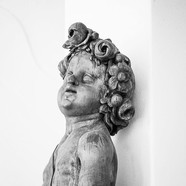A special edition of the journal Theater der Zeit has been published in 2018 to coincide with the one-hundred-year anniversary of the founding of Czechoslovakia. This issue is devoted entirely to contemporary Czech theatre. The anniversary year is also being marked by the publication of a collection of five contemporary Czech plays in translation.
Theater der Zeit Spezial
A special issue of Theater der Zeit (TDZ) devoted to Czech theatre is being published the same year that the Czech Republic is commemorating a series of events that played an important role in its history – the founding of Czechoslovakia in 1918, the Munich Agreement that led to Czechoslovakia‘s demise in 1938, the communist coup in 1948, after which Czechoslovakia remained behind the Iron Curtain and inside the Eastern bloc for the next four decades, and the Russian occupation in 1968 – and celebrating the foundation of the Czech Republic as a separate country twenty-five years ago in 1993.
All these events impacted Czech theatre and some of them are still being felt today. This special issue, which was created in collaboration between Theater der Zeit and the ATI’s magazine Czech Theatre, is devoted entirely to Czech theatre, but it can also be read as reflection on the history of the Czech state and its theatre.
Pět českých her [Five Czech Plays]
Pět českých her (Five Czech Plays) is an anthology of five plays that were staged for the first time within the past ten years. Authors from several generations are represented here in their work, from such big names in Czech drama as Václav Havel and Milan Uhde to bold new representatives of the youngest generation Anna Saavedra and Petr Kolečko.
These five selected plays piece together a picture of Czech society over the past several decades, its hopes and disappointments, the fates of people whose lives were marked by history, and the moral lapses that have occurred that cannot be blamed on history.
In Zázrak v černém domě (Miracle in the Black House) Milan Uhde offers a grotesque exploration of the relationships within a fractious family full of enduring illusions and preserved grievances, to then lead us step by step deeper in the direction of the tragic historical roots of the family’s problems.
Havel’s stage dialogue from 1987 called Prase (The Pig), which the author himself had forgotten about and did not include in his collected works (and which was staged for the first time in 2010) appears at first to be a comic tale about how the famous playwright is trying to find a pig for a pig-killing at his country house (Hrádeček), but it morphs into a kind of parable about a world in which decency is locked in a battle against pettiness and self-interest that it is condemned to lose.
Anna Saavedra’s play Olga is subtitled ‘Scenes from the Life of Olga Havlová, a Life She Did Not Choose But Proudly Made Her Own’ (Obrazy ze života Olgy Havlové - ze života, který si sama nevybrala, ale hrdě ho vzala za svůj). In it she creates a modest portrait of the first lady of the dissent movement and then of the Czech state that exhibits her inner strength and likeable defiance.
Petr Kolečko's Poker Face is a tragicomedy about the loss of illusions attached to the Velvet Revolution and the loss of illusions about the world today. It is a play about politics and about gambling – not just in poker.
The central protagonist in Petr Zelenka’s play Job Interviews is the owner of a casting agency who witnesses the relationships in her family all fall apart and then loses her job. The world of the entertainment industry is here used to epitomise the negativity and cynicism of the modern day.

